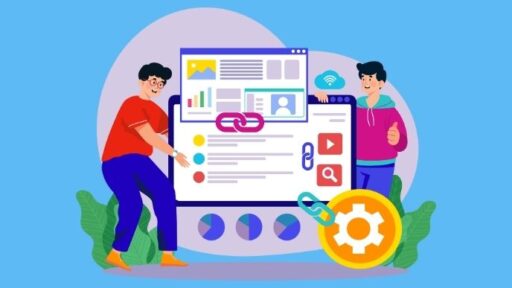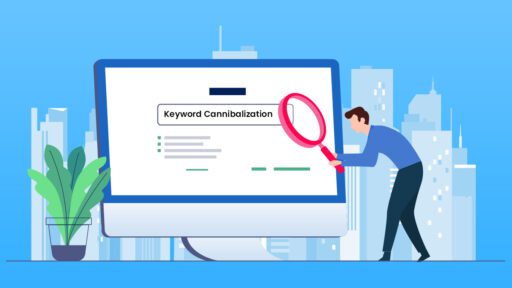Off-page SEO refers to actions taken outside your own website to impact your rankings within search engine results pages (SERPs). Unlike on-page SEO, which focuses on the content and structure of your site, off-page SEO emphasizes building credibility and authority through various strategies.
Strengthening your off-page SEO can greatly increase your site’s reach, attract more visitors, and help your pages rank better on search engines. Here, we share 10 key off-page SEO techniques to help you see stronger results.
Why Off-Page SEO Matters for Better Rankings
Off-page SEO plays a crucial role in helping websites rank higher in search engine results by building authority, trust, and relevance across the internet.
It includes activities that happen outside of your website but impact how search engines perceive it, such as link building, social media engagement, and online brand mentions. These factors collectively help search engines understand your site’s credibility and relevance, making it more likely to appear at the top of search results.
1. Build Quality Backlinks
Quality backlinks are essential for improving your site’s authority and search rankings. When reputable websites link back to your site, it shows search engines that your content is reliable and adds value to readers. This credibility increases your chances of ranking higher in search results.
Agencies like Zara Creative, known for leading SEO strategies, specialize in helping businesses secure valuable backlinks from high-authority sites. Their Services include off-page SEO, web design, social media management and website maintenance.
2. Engage on Social Media
Social media platforms give you a powerful channel to reach and engage with a broader audience, driving brand awareness and interest in your content. By sharing valuable and engaging posts, your followers are more likely to visit your site, increasing organic traffic and brand recognition.
3. Utilize Guest Blogging
Guest blogging is a win-win strategy that lets you share valuable content on other reputable websites while earning quality backlinks in return. By providing useful content on other platforms, you position yourself as an authority in your field and increase the likelihood of getting visitors back to your own website.
4. Create Shareable Content
Content that’s designed to be shared across various platforms helps increase your visibility and reach, leading to more brand awareness and engagement. Visual content like infographics, videos, and lists often gets shared more than text-only posts, making it easier for your content to gain attention and links.
5. Monitor Your Online Reputation
Keeping an eye on your online reputation is essential for maintaining a positive image and credibility with your audience. Regularly checking for reviews, comments, and mentions of your brand helps you stay aware of public perception and quickly address any negative feedback.
6. Participate in Forums and Communities
Joining forums and online communities can be a powerful off-page SEO strategy for building your brand’s visibility. Platforms like Quora, Reddit, or industry-specific forums allow you to interact directly with potential customers by answering questions and offering helpful insights.
7. Build Relationships with Industry Peers
Building relationships with industry peers is a powerful strategy for off-page SEO. Collaborating with others in your field can lead to valuable partnerships, guest posting opportunities, and backlinking possibilities. By connecting with influencers and like-minded professionals, you can create a network that supports your content and marketing efforts.
8. Use Local Listings
Using local listings is a key strategy for enhancing your business’s online visibility, especially for local SEO. By registering your business on platforms like Google My Business, Yelp, and Bing Places, you can find accurate information about your services. This includes your address, phone number, hours of operation, and website link. Local listings help your business appear in local search results, which is crucial for attracting nearby customers.
9. Submit Content to Bookmarking Sites
Submitting your content to bookmarking sites is an effective way to increase its visibility and drive traffic to your website. These platforms allow users to discover and share valuable resources, making them a great place to showcase your content. When you share your articles, blog posts, or infographics on popular bookmarking sites like Reddit, StumbleUpon, and Digg, you can reach a wider audience and attract potential visitors.
Conclusion
Implementing these off-page SEO strategies can significantly improve your website’s authority and visibility. By focusing on building quality backlinks, engaging with your audience on social media, and creating valuable content, you can drive more traffic to your site and improve its ranking in search results. Remember, off-page SEO is an ongoing effort, and the more you invest in it, the better your results will be in the long run.
FAQs
1. What is off-page SEO?
A: Off-page SEO refers to optimization techniques used outside of your website to improve its position in search engine rankings. This includes building backlinks, social media marketing, and reputation management.
2. Why are backlinks important for off-page SEO?
A: Backlinks serve as endorsements from other websites, which strengthens your site’s credibility. Quality backlinks signal to search engines that your content is trustworthy, encouraging better rankings.
3. How does social media affect SEO?
A: Social media can drive traffic to your website and increase brand awareness. Engaging content shared on social platforms can lead to more backlinks, indirectly benefiting your SEO efforts.
4. Can guest blogging improve my SEO?
A: Guest blogging helps you reach a wider audience and build quality backlinks to your site. It’s a great way to show expertise, improve your SEO, and create valuable connections in your industry.







